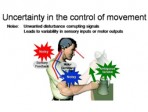 01:08:00
01:08:00
The Puppet Master: How the brain controls the body
The effortless ease with which humans move our arms, our eyes, even our lips when we speak masks the true complexity of the control processes involved. Professor Daniel Wolpert explains how the brain deals with this and can perform optimally in the p....
More details | Watch now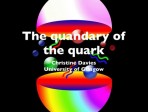 01:12:00
01:12:00
The quandary of the quark
99.9% of the visible material in the universe is made of quarks and yet we know surprisingly little about them. Professor Davies describes how the properties of the quark are now being revealed, and the implications that this will have for our unders....
More details | Watch now 01:12:00
01:12:00
Measuring our future: the role of sustainability metrics
The need to move towards a more sustainable way of life is now widely accepted, but deciding how to bring about this sustainable future world raises the question of measurement. This lecture explores the idea of Sustainability Metrics, and shows how ....
More details | Watch now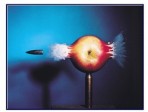 01:08:00
01:08:00
Optical science in the fast lane
In this talk Wilson Sibbett introduces some of the underlying concepts that have enabled us to develop practical ultrafast lasers and a selection of applications that range from the fundamentals of chemical bonding to weapons decommissioning!
More details | Watch now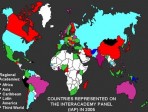 01:19:00
01:19:00
Beyond the human genome project
Dr Lander and his colleagues have developed many of the key tools and generated many of the key information resources for modern mammalian genomics. Their work includes mapping and sequencing of the human, mouse, and other genomes. He was elected a m....
More details | Watch now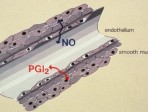 01:09:00
01:09:00
Adventures in vascular biology
Thirty years ago it was thought that the endothelium, a layer of thin, flat cells that line the interior surface of blood vessels was inert. However, major discoveries since then have demonstrated that it is a highly metabolic organ involved in maint....
More details | Watch now 00:56:00
00:56:00
Einstein’s legacy as scientist and icon
What might 'new Einsteins' achieve in the 21st century? Science offers more intellectual challenges than ever, but is a less individualistic enterprise. Technology offers imense opportunities, but poses threats and ethical dilemmas. Can scientists re....
More details | Watch now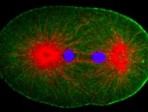 01:05:00
01:05:00
Genes, worms and the new genetics
A surprising finding over the past 20 years is that all animals have many of the same genes and that they use them in similar ways to grow and develop. These similarities mean that much of what is learned about what genes do in simple animals such as....
More details | Watch now 01:01:00
01:01:00
Finding the right balance: from rare gases to ribosomes
In this lecture Carol discusses the developments in accurately weighing atoms and molecules, from the earliest experiments used to examine gases through to the analysis of organic chemicals. She describes how she and other researchers developed innov....
More details | Watch now 01:13:00
01:13:00
Magnetic brain stimulation and brain function?
Like his nineteenth century contemporaries David Ferrier tried to reveal cerebral localisation of function by direct electrical stimulation of the exposed brain of animals. With some notable exceptions the results were disappointing and confined to t....
More details | Watch now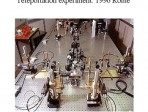 01:12:00
01:12:00
What is quantum non-locality?
In his talk Sandu will explain this quantum non-locality and present some of the uses of non-locality for quantum information and communication - strange effects such as teleportation - and will discuss the implications of non-locality for understand....
More details | Watch now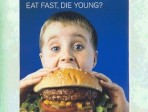 01:12:00
01:12:00
Risk: food, fact and fantasy
We all take risks, but most of the time we don't notice it. Eating, like everything else in life, isn't risk free. Is that next mouthful pure pleasure or will it give you food poisoning? Will it clog up your arteries as well as filling your stomach?
More details | Watch now
